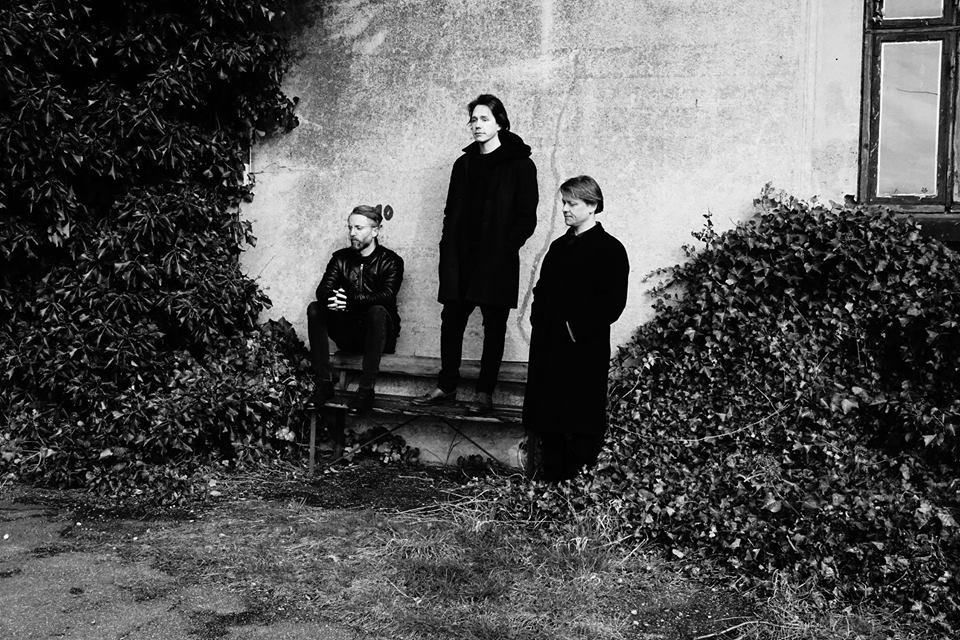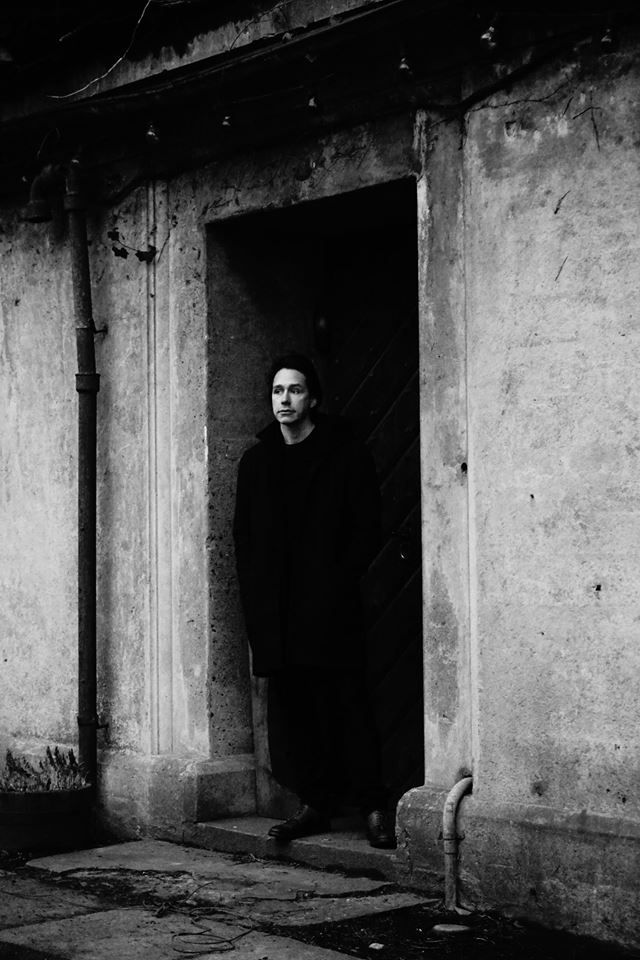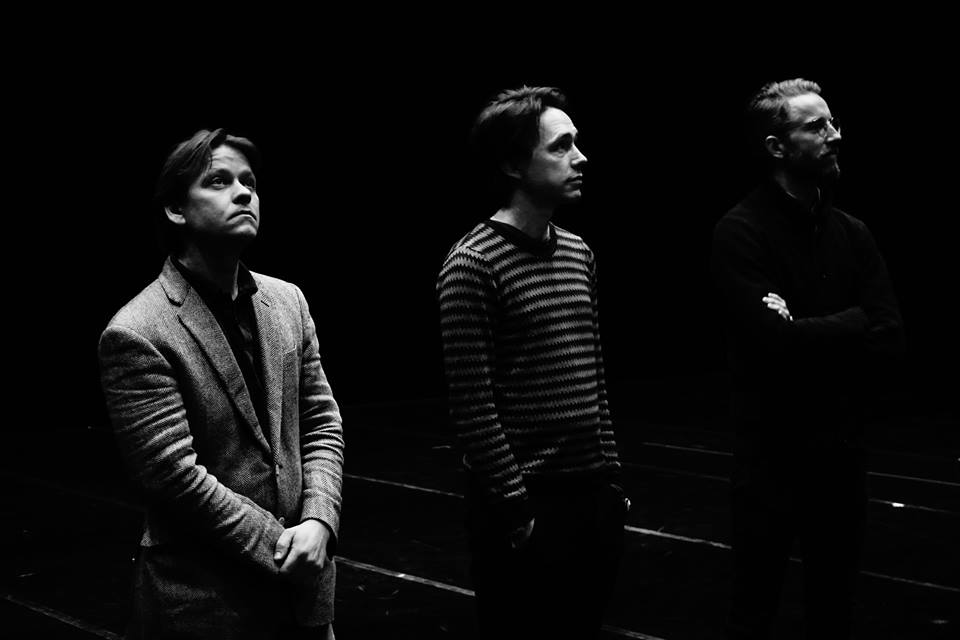Goethe wrote that “music is liquid architecture; architecture is frozen music”. That being the case, it’s fitting that part of my 15th anniversary with Frengers is diaried to take place at the Barbican Centre in London. The Big Smoke, the Great Wen, Londontown, the city where plenty of the record was germinated; Mew‘s quintessentially non-British opus. And the Barbican in the midst of the scene, that towering, brutal, monolithic, skyline-dominating structure…
… wait, no. It’s not fitting. It isn’t fitting at all. The Barbican’s imposing concrete mass, a marmite magnet that mandatorily attracts strong opinions one way or the other, would be the frozen music of Kraftwerk, or Spacemen 3, or Kate Bush, or Saint Etienne. Music with profound cultural and structural implications that could not, and cannot, be ignored, even if it could easily also be despised. The Barbican plainly would not be the cryogenic simulacrum of a piece like Frengers. It does not reflect the subtleties, the epiphanic prisms and the deeply personal resonance – the profoundly changed lives – that perhaps most often happen when culture, art, is an outsider thing. An under-the-radar thing. A thing which everyone had to find themselves, by spade or by hook or by crook, perhaps by serendipitous chance, rather than it finding them.
The word choice there was deliberate. We stumbled upon this record, despite it not necessarily demanding to be discovered. And, through happenstance, it in turn had something to say about how we then went about finding ourselves, what we’re like and what we like. Whatever the intentions of the authors, their creation belongs to us now and we can do with it whatever we want.
I thought very carefully about what I wanted to say in this article. I thought about my own discoveries in the early 2000s and what that felt like to a younger impersonation of me. But I didn’t want to get all indulgent. I thought about architecture, and then the metaphor failed. I thought about nostalgia, and history, and growing older, and this quote from Clive James in Cultural Amnesia, but then I just felt sad:
“History needn’t have been like that. That’s what history is; the story of everything that needn’t have been like that.”
I grew up with Frengers during formative years, and to a large extent my life has been built around it, sculpted as a result of it, ever since (could you tell, with the ink on my upper left arm?). So, most of all, given this is an anniversarial retrospective, I thought about whether it’s really possible to accurately recall a memory as strong and as significant. I thought about whether the ripples and consequences have been so keen, so weighty, that it is now impossible to hear Frengers outwith the context it itself constructed. It remains a towering achievement of an album, but because of what it effected just as much as what it is.
Put it like this: these concerts, happening now, in 2018, are nostalgic by their very definition – but are we only ever looking back through the prism of all the memories, opinions, weltanschauungs, that were built since? There is only ever an increasing span of time between then and whenever “now” happens to be, and a steadily accumulating number of ways to recall what’s lacking in the present, but wasn’t always absent. That being so, are we really talking about a nostalgia for the record itself, or is it just being young that we miss?
As usual, Simon Reynolds has probably said it best in his enviable Retromania:
“Is nostalgia stopping our culture’s ability to surge forward, or are we nostalgic precisely because our culture has stopped moving forward and so we inevitably look back to more momentous and dynamic times?”
I thought that I wasn’t the best person to answer all these vague propositions, these pseudo-philosophies. At best, I am a sorely under-qualified amateur phenomenologist, trying and failing to get to the bottom of some of the imponderables that pop music is capable of posing. I’m also only one receiver of the record, one of very many thousands. I thought that my best bet wasn’t to arrive at answers, but to see if others agreed with the questions. I decided to talk to one of the architects of the work itself and see what his own prisms and memories were, and how they had changed since. And I’m hugely grateful to Jonas Bjerre for taking the time to do that.
“Is it possible to hear any record out of the context of everything that surrounds it, purely listening to it for the sounds and the melodies and the tones? I remember you talking about playing a Cure single at 33 instead of 45, and only realising it wasn’t supposed to sound like that ages later….”
Jonas: “I think only when you are very young and open (or impressionable). Probably not even then. Sounds, melodies, tones, what are they really, to you? We wanted to do an experiment, when we did the video for Repeaterbeater, to have a hypnotist put us in a trance, and to then subject ourselves to our own music, hearing it without knowing who made it. Unfortunately, that part of the shooting didn’t come to fruition.
“It’s such a big question; does any art have inherent value? I don’t think it does. Beauty is indeed in the eye of the beholder, and in this case, in the ear of the listener. And I think that’s a wonderful thing. I like to think that when we’ve created a song, it keeps growing in the consciousness of people discovering it. It mixes up, in their lives, in all the things that happen to them around the time they discover it. That way, it keeps evolving from the point it was made, but at the same time it becomes connected to a specific time in people’s lives.”
“Related to that, is it possible for you to think about Frengers in the same way that you did when you were making it? Or can it only be heard, considered, remembered, through the prism of what has happened since?”
Jonas: “To some extent, much like you can be taken back to a memory from your childhood, and remember what that moment felt like. But it’s now mixed with the understanding of what that moment meant, and the practicality of it. So it will never be quite the same feeling, if you’re consciously trying to remember it. It’s difficult to bypass that prism.
“They say that your sense of smell is the one that most immediately triggers memories, and I’ve found this to be true. But music comes close also. The wonderful thing about that, I think, is that you can sometimes be reminded of a moment, or a feeling, and the feeling itself reaches you before your conscious understanding of it. You just feel it, without knowing what it is you’re feeling. I also have that experience, coming out of dreams sometimes. I’ll wake up in a hotel somewhere, on tour, and think “wow! We were just on stage in front of a whole bunch of people! That’s crazy!” and the full realization of the emotions surrounding that hits me so hard, as I’m unprepared for it, coming out of my sleep. Sometimes I have that feeling too, when I’m reminded of a specific moment during the times we recorded albums, or came up with new ideas.”
“Also along those lines, have you still made the same type of creative decisions in the 15 years since Frengers? How much of what has happened since is your own response to what you created then?”
Jonas: “I think it’s kind of a battle between your sense of intuition, and the sense of aesthetics that you inescapably develop over the years. It needs to be a fine balance. But I think, when you’ve been a band for a while, you tend to hone in on the aestethics a bit too much, and it becomes more of a challenge to let your intuition have as much of a say. You have to keep challenging yourself to not get stuck. To me, it needs to be equal parts emotions/intuition and invention. And the aesthetics should be a kind of by-product of that. I want to invent something. I want to do something that I don’t already know from somewhere else, or already know how to do. I want Silas to shock me with something musically crazy. I’m really attracted to the idea of making something which abandons completely my sense of aesthetics, and just becomes what it becomes, almost on its own. I think that’s a great starting point, and from there you can implement some judgement, some choices and decisions, to make it work as a whole, a body of work. There is something about the way we work together in the band that allows this to happen quite often.”
“What were your goals when you started making Frengers? What did you want to achieve with it? How have those goals evolved when you started to make Kites, No More Stories, +- and Visuals?”
Jonas: “We really wanted to succeed. And we really wanted our music to be heard. We had our shot on a major label, and we didn’t want to screw it up. I think we put a lot of pressure on ourselves, and it could have made us afraid of making some of the unusual choices we made. Luckily, we had a certain confidence in what we were able to do together, and we were able, I think, to create something that felt free and focused at the same time.
“We never want to make the same album twice, that would just not feel inspiring. And that’s the big fear, I think, to stagnate, to stay in one place. And what works for you at one point in your life, will not keep working for you forever. So we always try to shake things around, to do things differently than we’ve done before. Kites was quite fearless really, after Frengers, being on a major label. Each album is its own little chapter in our lives. I don’t think it makes sense to say that we get better at it, or that this album is better than that other one. Each album is irrevocably tied to the time it came out, and for me, the experience of making it, is part of the album itself. I feel the same way about albums by other artists, that they consist not only of the sounds and melodies recorded, but also of all the memories that I connect with the time I discovered them. The primary goal for us, is to just make the music we want to make. To not interrupt the flow of what feels right. I count myself very lucky, that we are still able to make a living doing that.”
“Is it possible to set out to make a work of art that profoundly affects the lives of people who receive it? Or can that only be a happy accident, a serendipitous side effect of the tunes themselves being good?”
Jonas: “At first I think it has to move you, the person creating it. If it moves you, it is likely to move someone else too, especially people who share some of your sensibilities. But I think setting out to “affect” people will quite quickly make what you’re making feel contrived and forced, and sometimes clichéd.”
“Perhaps a slightly provocative question – what do you think these shows in 2018 are going to add to the memories and perceptions of people who have lived closely with the record for the past 15 years?”
Jonas: “It’s kind of hard to fathom how much this album has impacted our lives, us in the band. But it’s also extremely gratifying to see how it has affected others, the people who follow what we do, and come to our shows. So I think it’s going to be a bit nostalgic for everyone. I think that’s something we can share with the audience.”
“Can you picture your life without that record in it?”
Jonas: “I can picture my life being very different without it. Not in the way that I would have died in a ditch somewhere or anything, but if we had not made this album and ended up making something else instead, things would have unfolded very differently. Although it was a tumultuous time in our lives, moving to another country, touring extensively for the first time, I remember it as adventurous, and most of my memories of making it, are fond memories. Kites was, for me, a lot more difficult, emotionally and physically, it was just a different time. Frengers felt like the culmination of something, like arriving somewhere. Our dreams came true, sort of.”
Talking to Jonas made me start to doubt the basic validity of the propositions and questions about time, nostalgia, about the ripples created by great decisions. If pop music is going to be considered great, it needs to be able to be analysed at either no level at all, or in as great a depth as the listener wishes. It should be both aesthetically pretty and cerebrally challenging, never demanding that either takes precedence by default. It should ask questions that are only really answerable on the level of the receiver. Quidquid recipitur ad modum recipientis recipitur.
A creation like Frengers begs a chameleonic nostalgia. Sure, it is a landmark record, moment, event, whatever. But it’s not really the character, the timbre, the texture, of the memories that are important. Despite the visceral self-doubt of many of the lyrics, the whole artefact was self-assured enough to let those memories grow organically. It invited its listeners to become their own architects.
The victory, then, is that there was ever the capacity for any nostalgia to exist at all. I have come to believe that the precious thing isn’t how a record like this can exist in, or through, prisms of time and perception. The important thing may simply be that it created those prisms in the first place. As it turns out, that frozen music of Goethe’s might have been a perfect metaphor all along. The tunes set all of the foundations that were necessary; not all houses are homes, but this piece of liquid architecture naturally is. Again, it was an organic foundation. It planted seeds, seeds of curiosity and adventure and progression and belonging, and sat back as they flourished in the heads of those who got it, those of us who understand.
Perhaps most importantly of all, we never cared too much for the portmanteau of the record’s title. There was no need to behave as if that were literal. We became friends who abhor time and distance. And although time and distance haven’t been shy in dispensing their fair share of hurt – still do, sometimes – we know that no matter how much of each there has been, we shall meet in bodegas and kneipes and concrete concert halls, and resume the conversations exactly where they were last paused. Frozen indeed.
Nostalgia or none, however badly informed some of the life choices in between have been, there has never been so much time and distance that being tactile suddenly feels wrong, or that we doubt that we’re each thinking “welcome home. Welcome home.”
Photos by Sasha Ryabina


